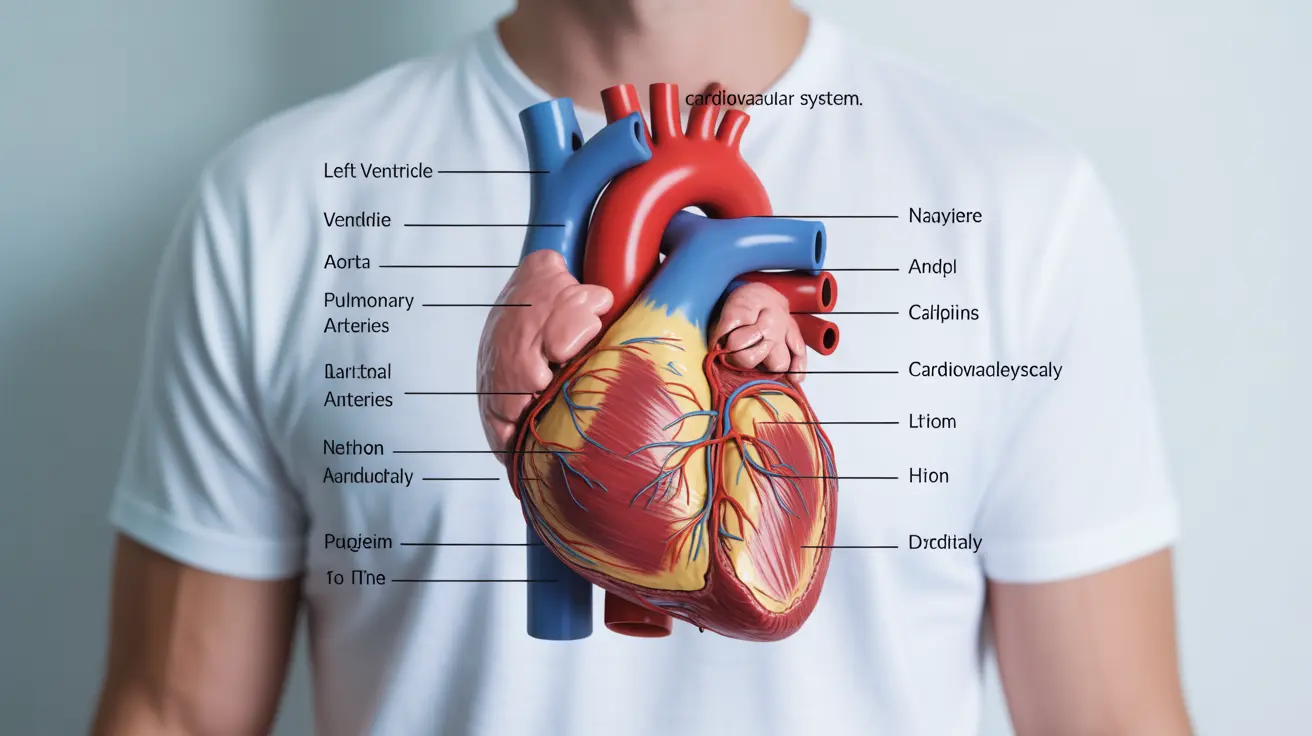Cardiomegaly, commonly known as an enlarged heart, is a serious medical condition where the heart becomes larger than its normal size. This condition isn't a disease itself but rather a sign of an underlying heart problem or condition that needs medical attention. Understanding cardiomegaly is crucial for early detection and proper management of heart health.
While an enlarged heart can affect people of all ages, certain factors and conditions make some individuals more susceptible to developing this condition. Let's explore the essential aspects of cardiomegaly, from its causes and symptoms to treatment options and prevention strategies.
Understanding the Causes and Risk Factors
Various conditions and factors can lead to cardiomegaly, including:
- High blood pressure (hypertension)
- Coronary artery disease
- Heart valve disease
- Pregnancy (in some cases)
- Hemochromatosis (iron buildup)
- Thyroid disorders
- Certain medications
- Family history of cardiomegaly
Understanding these risk factors is crucial for prevention and early intervention. Some conditions may be preventable through lifestyle modifications, while others may require medical management.
Recognizing the Symptoms
Cardiomegaly doesn't always present obvious symptoms, especially in its early stages. However, when symptoms do appear, they may include:
- Shortness of breath, especially during physical activity
- Irregular heart rhythm or palpitations
- Swelling in the legs, ankles, and feet
- Fatigue and weakness
- Dizziness or fainting
- Chest pain or discomfort
- Persistent coughing or wheezing
Diagnostic Procedures
Healthcare providers use various methods to diagnose cardiomegaly, including:
- Chest X-rays to visualize heart size
- Electrocardiogram (ECG) to check heart rhythm
- Echocardiogram for detailed heart imaging
- Blood tests to check for underlying conditions
- MRI or CT scans for comprehensive heart evaluation
Treatment Approaches
Treatment for cardiomegaly focuses on addressing the underlying cause and may include:
- Medications to control blood pressure or heart rhythm
- Surgery for severe cases or valve problems
- Lifestyle modifications
- Regular monitoring and follow-up care
- Implanted devices in some cases
Lifestyle Modifications for Management
Several lifestyle changes can help manage cardiomegaly:
- Maintaining a heart-healthy diet
- Regular physical activity as approved by your doctor
- Limiting sodium intake
- Avoiding alcohol and tobacco
- Managing stress effectively
- Getting adequate rest
Prevention Strategies
While not all cases of cardiomegaly are preventable, certain measures can help reduce risk:
- Regular blood pressure monitoring
- Maintaining a healthy weight
- Exercise regularly
- Eating a balanced diet
- Regular medical check-ups
- Managing existing health conditions
Frequently Asked Questions
What are the common causes and risk factors of cardiomegaly (enlarged heart)? Common causes include high blood pressure, coronary artery disease, heart valve disease, and certain genetic conditions. Risk factors include family history, obesity, and lifestyle factors such as excessive alcohol consumption.
What symptoms should make me suspect I have cardiomegaly, and how is it diagnosed? Key symptoms include shortness of breath, irregular heartbeat, swelling in extremities, and fatigue. Diagnosis typically involves chest X-rays, ECG, echocardiogram, and other imaging tests as needed.
What treatment options are available for managing an enlarged heart and its underlying causes? Treatment options include medications, surgery when necessary, lifestyle modifications, and regular monitoring. The specific approach depends on the underlying cause and severity of the condition.
How can lifestyle changes help prevent or reduce the risk of cardiomegaly? Lifestyle modifications such as maintaining a healthy diet, regular exercise, limiting sodium intake, avoiding tobacco and excessive alcohol, and managing stress can help prevent or manage cardiomegaly.
What complications can arise from an enlarged heart if left untreated? Untreated cardiomegaly can lead to heart failure, blood clots, heart valve problems, cardiac arrest, and other serious complications that can be life-threatening.




